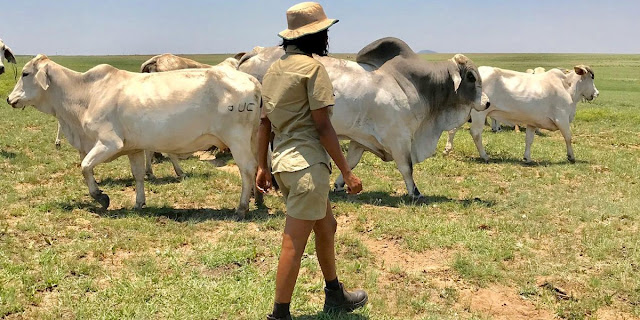1. Treating Animal Agriculture as a Lifestyle or a Hobby not a Business
Most farmers treat agriculture as a hobby not realizing
how much money they are losing year in, year out through this expensive hobby
that can be profitable.
For example, animal feed is expensive and if livestock
businesses are registered as businesses, farmers could get their VAT back.
2.
Starting the Livestock Business with no Business Plan
Farmers make the mistake of starting livestock businesses
without a business plan. It is important to know what the business looks like on
paper. Livestock business operational plans, involve consultation with Animal
scientists who are experts in animal production and livestock feeds and
feeding. Farmers must understand the science of feeding and breeding in order
to make profits in livestock business.
3. Poor
or non-existing Accounting
With bad numbers or no numbers you are flying blind. As a farmpreneur you need to know the cost of production and the difference between
profit margins and cash flow.
Hire an agricultural economist, to help you with your
cost analysis, or an accountant.
4. Lack
of Focus or Running too many Enterprises
Yes farming is tempting to have a little of everything
but start with 1, get really good at it, then grow the business, diversify.
Farmers want to copy what other farmers have done without
understanding why the other is successful and whether it can be replicated. Your
farming situation will never be the same as the other farmer. Look at you
situation and see what you can do. Dare to be different.
6. Farming
is more of a Science not an Art. The Mistake of not Hiring Professionals
This leads to improper mix of feed and fodder, not
following vaccination schedules and/or following outdated livestock management
practices. If you want to manage a profitable farm business adhere to
scientific farm management practices, use scientific techniques in housing,
breeding and animal health management. Hire Animal scientists, veterinarians,
Agro economists. We are all here for you.
7. Undercapitalised
Businesses
Farming is a capital intensive business; like any other
business it has its risks that are supposed to be properly described in the
business plan such as drought, diseases and floods.
The farmer must have cash reserves or cash cushions. If
you don't have such, get out, earn more and save first. Or go get it.
Make
the right decision and make your money work for you!!


Comments
Post a Comment